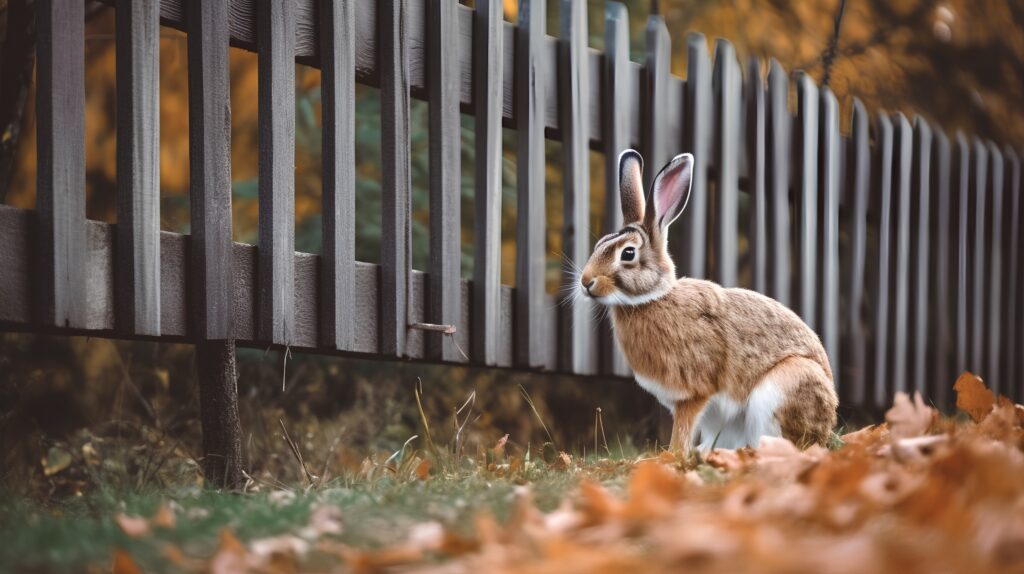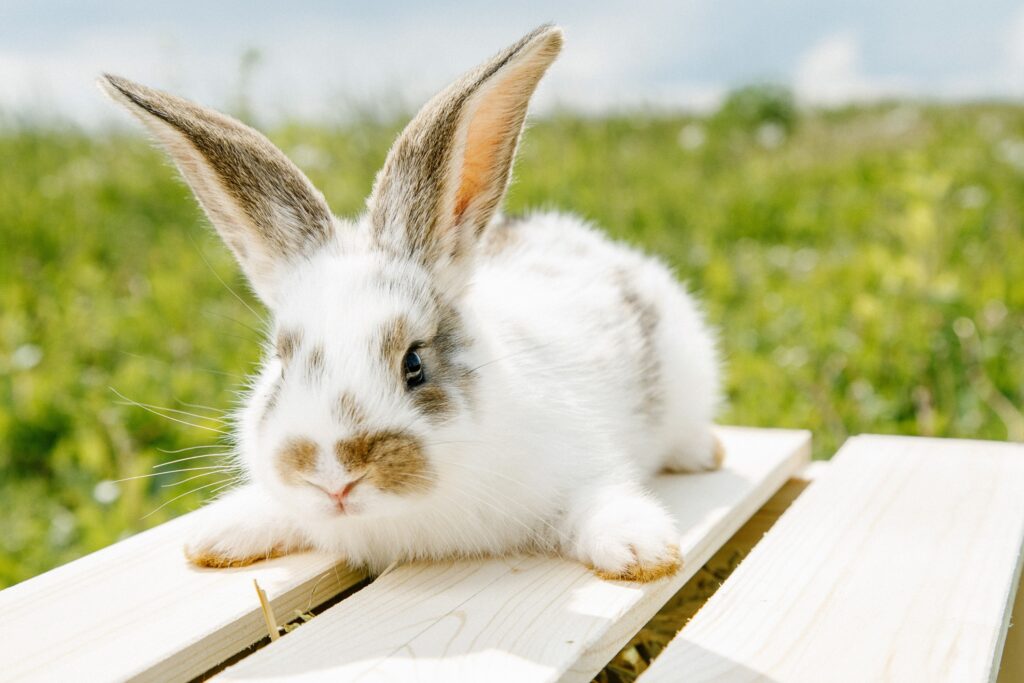How Do Rabbits Act When Angry? Understanding Rabbit Behavior
Rabbits are adorable and gentle creatures that make great pets. However, like any animal, they can become angry or agitated. Rabbit owners need to understand how their pets behave when they are upset, so they can avoid getting bitten or scratched.

When rabbits become angry, they may exhibit a variety of behaviors. For example, they may growl, thump their hind legs, or charge at people or other animals. Rabbits may also nip or bite when they are feeling threatened or stressed. Understanding these behaviors can help rabbit owners avoid situations that may upset their pets and keep them safe.
Overall, rabbit owners need to be aware of their pets’ behavior and body language. By recognizing the signs of anger or aggression, they can prevent their rabbits from becoming upset and keep themselves and their pets safe. In the following sections, we will explore the signs of an angry rabbit in more detail and how to deal with this behavior.
Physical Signs Of Anger
When angry, rabbits exhibit various physical signs to help their owners identify their moods. This section will discuss two sub-sections that detail the physical signs of anger in rabbits: Facial expressions and Body language.
Facial Expressions
Rabbits are known for their expressive faces; when angry, their faces can reveal their emotions. These are some of the facial expressions that rabbits may exhibit when they are angry:
- Teeth grinding
- Flattened ears
- Narrowed eyes
- Growling or hissing
If a rabbit exhibits these facial expressions, it is best to leave them alone until they calm down.
Body Language
Rabbits also use their body language to communicate their mood; when angry, their body language can be quite aggressive. These are some of the body language signs that rabbits may exhibit when they are angry:
- Stomping their hind legs
- Puffing up their tail
- Lunging or charging
- Scratching or biting
If a rabbit exhibits any of these body language signs, giving them space and avoiding handling them until they have calmed down is important.
Understanding the physical signs of anger in rabbits is crucial for their owners to ensure their safety and well-being. By paying attention to their facial expressions and body language, owners can identify when their rabbits are angry and take appropriate measures to avoid harm.
Vocalizations

When rabbits are angry, they often use vocalizations to express their emotions. These sounds can vary depending on the severity of their anger. Here are some common vocalizations that rabbits make when they are angry:
- Grunting: Rabbits make a low, guttural sound when annoyed or frustrated. It can be a warning sign that the rabbit is about to become aggressive. If you hear your rabbit grunting, it’s best to give them space and avoid handling them until they calm down.
- Growling: This is a more intense version of grunting and is usually a sign that the rabbit is angry or scared. They may also bare their teeth and flatten their ears against their head. If your rabbit is growling, giving them space and avoiding any sudden movements that could startle them is important.
- Screaming: Rabbits make a high-pitched, piercing sound when in extreme pain or distress. If your rabbit is screaming, seeking veterinary care is important.
It’s important to note that not all rabbits will vocalize when they are angry. Some rabbits may become very still and tense, while others may become more active and aggressive. Pay attention to your rabbit’s body language and behavior to determine its emotional state.
Aggressive Behavior
Rabbits can display aggressive behavior, especially when feeling threatened or scared. Understanding the signs of aggression in rabbits is important to prevent any harm to yourself or others.
Biting
Rabbits can bite hard when they are angry. They have sharp teeth and can cause serious injuries. A rabbit may resort to biting as a defense mechanism when feeling threatened or scared. It is important to approach rabbits calmly and avoid sudden movements to prevent them from feeling threatened.
Scratching
Rabbits can also scratch when they are angry. They have sharp claws that can cause scratches and wounds. A rabbit may use its claws to defend itself when feeling threatened or scared. It is important to approach rabbits calmly and avoid sudden movements to prevent them from feeling threatened.
Thumping
Rabbits can thump their hind legs when they are angry. This is a warning sign to other rabbits or animals that they feel threatened. When a rabbit feels threatened or scared, it may thump its hind legs to warn others to stay away. It is important to approach rabbits calmly and avoid sudden movements to prevent them from feeling threatened.
Causes Of Anger

Rabbits can get angry for various reasons. This section discusses some of the common reasons why rabbits may become angry.
Fear
When rabbits feel threatened or scared, they may become aggressive. Fear can be caused by anything the rabbit perceives as a threat, such as loud noises, unfamiliar people or animals, or sudden movements. Rabbits may also become fearful when they are in pain or discomfort.
Territorial Behavior
Rabbits are territorial animals and may become aggressive if they feel their territory is being invaded. This behavior is more common in male rabbits than in females. Rabbits may also become aggressive if they feel their food or water supply is threatened.
Social Hierarchy
Rabbits have a complex social hierarchy, and they may become aggressive toward other rabbits if they feel their position is being challenged. This behavior is more common in rabbits that are not neutered or spayed.
Preventing Anger In Rabbits
Rabbits can get angry due to a lot of reasons. It is important to prevent this from happening because it can lead to serious problems like rabbit fighting and biting other species. Here are some tips to prevent anger in rabbits:
Providing A Safe Environment
One of the most important things to do is to provide a safe environment for your rabbit. This means ensuring that your rabbit has enough space to move around and play and providing a comfortable and clean living space. Ensure your rabbit has access to fresh water and food at all times.
Avoiding Stressful Situations
Stressful situations can cause rabbits to become angry. Avoid loud noises, sudden movements, and other things that might startle your rabbit. It is also important to avoid overcrowding, as this can lead to fights between rabbits.
Proper Socialization
Proper socialization is important for rabbits, as it helps them to learn how to interact with other rabbits and humans. Ensure your rabbit gets plenty of socialization time with other rabbits and people. This can help your rabbit to learn how to play and interact safely and positively.
By following these tips, you can help to prevent anger in rabbits and create a safe and happy environment for your pet.